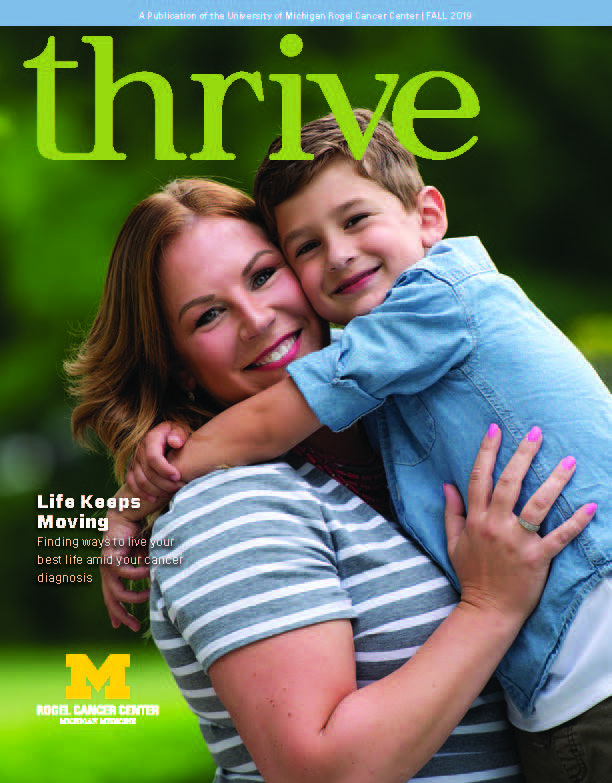Fall, 2019

Alena Williams, MSW, a Michigan Medicine health educator, tobacco treatment specialist and clinical group facilitator at the Cancer Support Community of Greater Ann Arbor explains why quitting tobacco is so important to the health of patients and survivors.
Logan Moore discovered a lump while nursing her 7-month-old son. It was a devastating shock to her and her family. Throughout her treatment, Moore and her husband, Brandon, focus on making her cancer and its treatment a part of their lives while keeping their family at the center.
Kevin Harrington loves his job delivering packages for United Parcel Service Inc. The 52-year-old husband and father of two from Howell, Michigan, is also a safety co-chair, training other drivers on the UPS mantra to stay safe “one stop at a time.” He applies the same philosophy to another important role: mentoring newly diagnosed bladder cancer patients at the University of Michigan Rogel Cancer Center.
Flu season is upon us with expected peaks in January and February. Because many people with cancer already have weakened immune systems, we get a lot of questions about whether patients and their families should get vaccinated.
University of Michigan Rogel Cancer Center researcher Suzanna Zick, N.D., MPH, partnered with researchers in California to review which popular diets best support a patient’s goals of improving survival and preventing recurrence. They examined five diets: the alkaline, Paleolithic, ketogenic, vegan/vegetarian and macrobiotic.
Waiting for answers is never easy, but cancer patients know that waiting for scans, test results or health information can be so stressful that day-to-day life can be practically unbearable. Patients have coined the term “scanxiety” to capture the flavor of the experience.
The Remote Patient Monitoring Program for Chemotherapy Related Nausea at the University of Michigan Rogel Cancer Center helps patients receiving high emetogenic treatment deal with the difficult side
effects.
